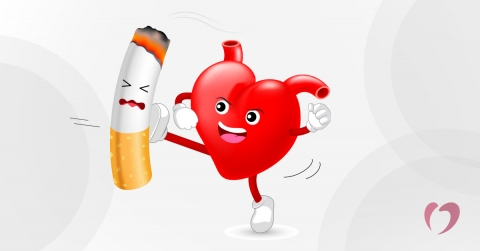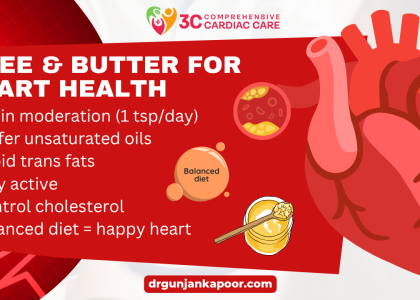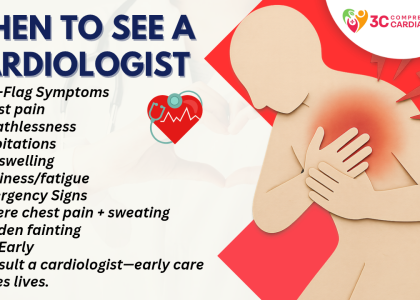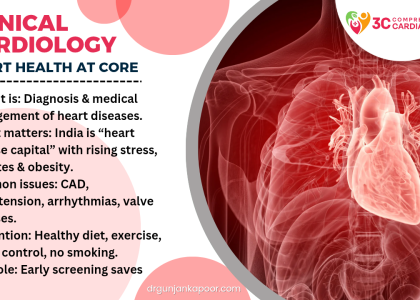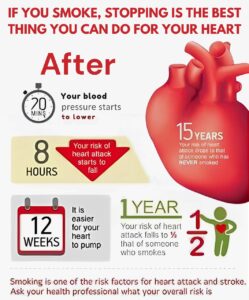
Smoking & Risk of Heart Attack & Sudden Cardiac Death
Did you know that smoking is a major culprit behind heart attacks and sudden cardiac death (SCD)? Smokers are 2-4 times more likely to develop coronary heart disease (CHD), leading to around 700,000 smoking-related deaths every year. Shockingly, 20% of heart attack deaths have smoking as an underlying cause. If you’re a smoker, you’re 2.5 times more likely to have a heart attack and three times more likely to experience sudden cardiac death.
Benefits of Quitting Smoking
Ready to kick the habit? Here’s why you should:
Immediate Benefits
– Within 20 minutes: Your heart rate and blood pressure drop to normal levels.
– Within 12 hours: Carbon monoxide levels in your blood normalize.
– Within 24 hours: The risk of a heart attack begins to decrease.
Short-Term Benefits
– Within 2 weeks to 3 months: Your circulation and lung function improve.
– Within 1 to 9 months: You’ll notice less coughing and shortness of breath.
Long-Term Benefits
– Within 1 year: Your risk of coronary heart disease is cut in half.
– Within 5 years: Your risk of stroke drops to that of a non-smoker, and the risk of cancers of the mouth, throat, oesophagus, and bladder is halved.
– Within 10 years: Your risk of dying from lung cancer is about half that of a smoker.
– Within 15 years: Your risk of coronary heart disease is similar to that of a non-smoker.
Quitting smoking offers benefits beyond physical health:
Improved Mental Health
– Reduced anxiety and depression.
– Enhanced cognitive function, including better memory and attention.
Better Quality of Life
– Enhanced taste and smell.
– Improved appearance with better skin tone and whiter teeth.
Challenges in Quitting Smoking
Quitting smoking is no walk in the park due to:
– Nicotine Dependence: A tough addiction to break.
– Withdrawal Symptoms: Intense cravings, irritability, and difficulty concentrating.
– Weight Gain: A common fear post-quitting.
– Stress Relief: Smoking is often used to cope with stress.
– Social Norms: Smoking can be a social activity.
– Behavioral Habits: Breaking the habit in certain situations can be challenging.
– Psychological Dependence: Strong emotional attachment to smoking.
– Relapse: High risk of relapse, especially during stressful situations.
Why Quitting Smoking is Tough
Nicotine affects your brain’s neuroreceptors and dopamine pathways. It binds to nicotinic acetylcholine receptors (nAChRs) in the brain’s reward areas, stimulating dopamine release and creating a sense of euphoria. This reinforces smoking behavior, making it hard to quit. Increased dopamine levels make the brain depend on nicotine for normal functioning. When you quit, withdrawal symptoms like cravings, irritability, and anxiety can make it difficult.
Conclusion
Quitting smoking is undeniably challenging, but the benefits far outweigh the difficulties. From immediate health improvements to long-term reductions in disease risk, the rewards are vast. While the path to becoming smoke-free can be tough, understanding the challenges and preparing for them can increase your chances of success. Remember, every step you take toward quitting is a step toward a healthier, happier life. Stay persistent, seek support, and keep your eyes on the prize – a life free from the grip of smoking.
P.S.: Stay tuned for our next blog on how to quit smoking: drugs, strategies, and success rates.

